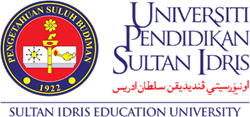Education administrators’ professional standards: The Malaysian perspective
Keywords:
School leadership;, school principal, Malaysian School Principals‟ Competency Standards 2006, standardsAbstract
Schools‟ leadership are central to the task of building schools‟ environment and culture that promote learning for all students. Second only to the influences of classroom instruction, school leadership has been shown to have very strong influence on student learning. In Malaysia, where the education system is undergoing reforms, school principals have been given new deals in terms of tasks and responsibilities. They are expected to be educational visionaries, curriculum and instructional leaders, assessment experts, disciplinarians, community builders, public relations and communication experts, budget analysts, facility managers, special programs administrators, as well as guardians of various legal, contractual, and policy mandates and initiatives. The competencies they require in order to perform these new roles professionally have been spelled out in great detail in the Malaysian School Principals‟ Competency Standards 2006 (MSCPS). The MSCPS describes the knowledge, the professional values and commitment, and the actions or performance(s) that the principals have to know, to commit, and to do in order to achieve the core purpose of leading the schools. The discussion will focus mainly on how the standards have been developed and tested.




